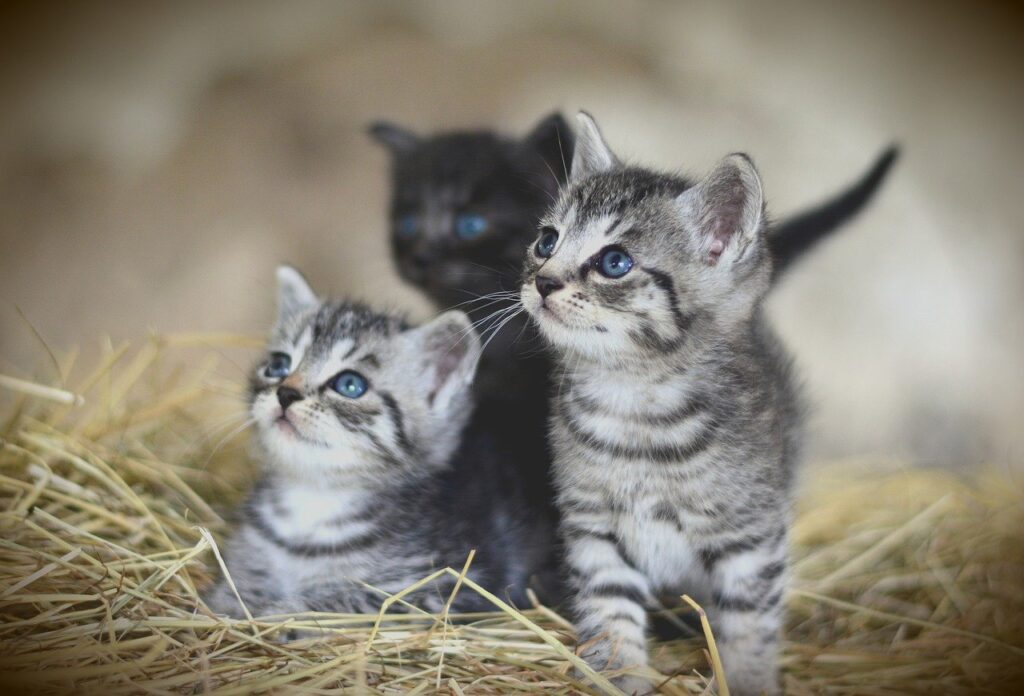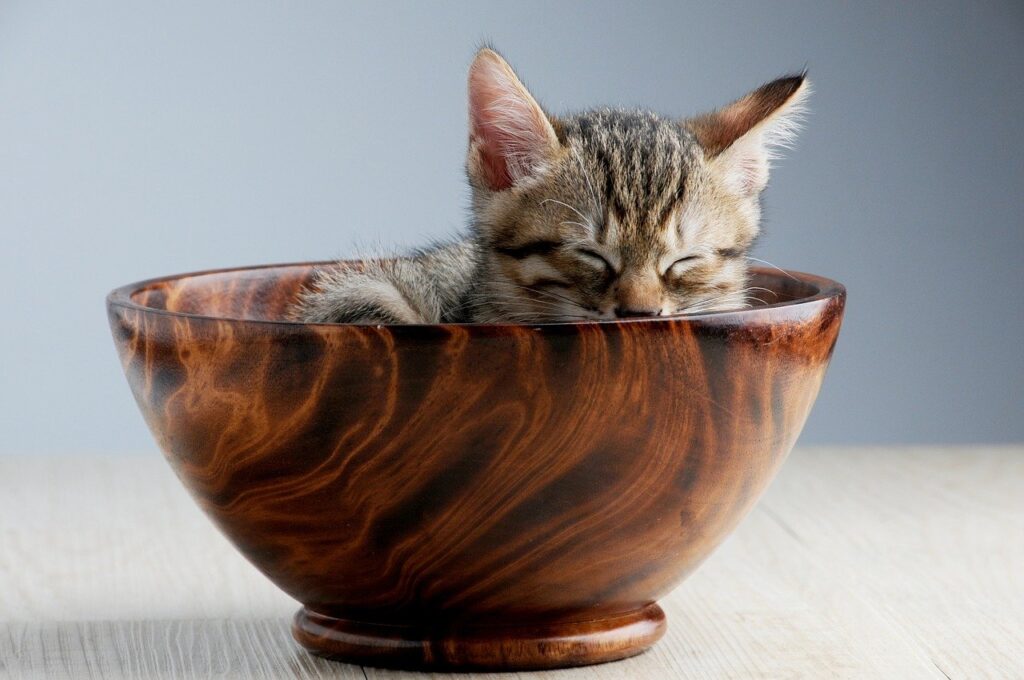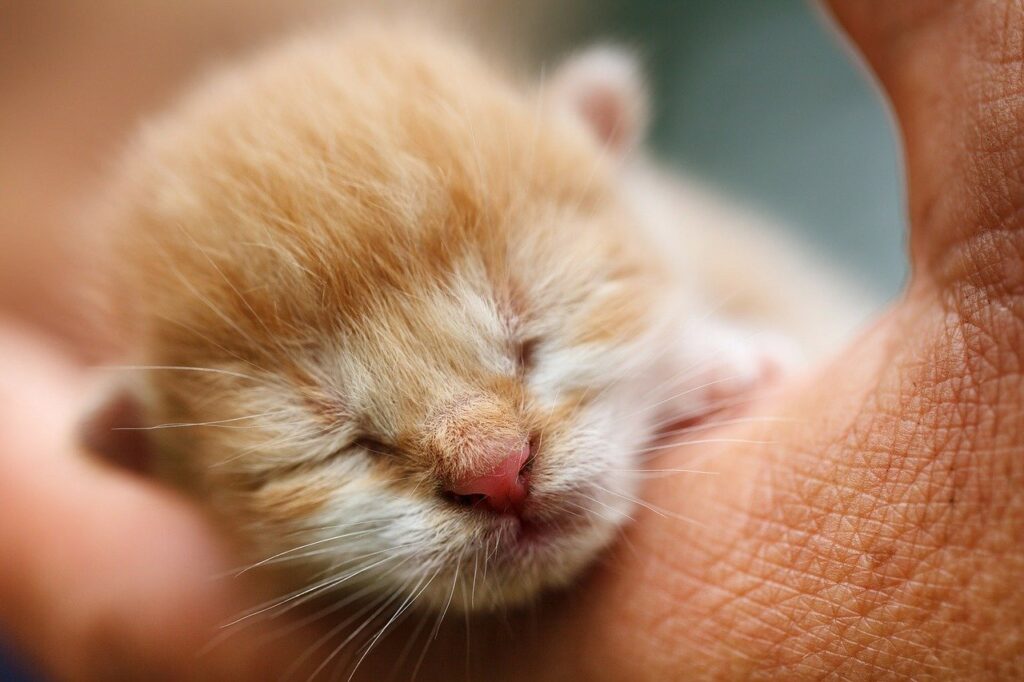Adopting a kitten is a wonderful moment for most potential cat parents, but it also comes with many considerations. Which feline breed should I adopt, for example? Shall I buy a kitty and train it properly or adopt a stray feline? You’re probably thinking about your schedule and what kind of feline might be best for you.
One concern that prospective feline parents have is whether they should get a male or female kitty. No doubt, both sexes have advantages and disadvantages. You might want to go through them in greater detail so it can help you decide if a male or female cat is ideal for you.

There are valid explanations for both aspects of the classic male vs female feline topic, but let’s explore a few of the grounds for adopting both. You’ll also know some tips on how well the two of them might interact effectively in diverse home settings.
How are Male and Female Kittens Different in real life?
While considering sex-based habits, the key point to remember is that the inconsistencies should not be regarded as a universal norm. It’s not like every male or female feline would exhibit the features listed, and also how the kitty is raised could have a significant impact on their temperaments.
Physical Characteristics
Male and female felines, as well as mature felines, have distinct differences. Male kitties are often bigger and bulkier than female felines. Most feline breeds including mixed breeds fall within this category.

Lifespan
Female felines have also been observed to thrive one to two years more than male felines. In addition, several other variables influence a pet’s lifetime, such as inherited disorders, food, and anxiety.
Temperament
Male felines tend to become more extroverted and friendlier than female felines; however, this isn’t always the case. For instance, if you have male and female felines and you interact, walk, and engage with the female feline daily, while the male does not get the same attention, then the female would be more inclined to become extroverted. Some believe that male felines are kinder and more friendly than female felines since they lack the maternal impulses that female cats have for babies. Males are more eager to engage with others as a result of this.
Inter-Cat Behavior
Females might acclimatize more quickly and with much less difficulty with another feline in the house. That’s because female felines in feline communities prefer to work along to look after babies and assist the community, but male felines might be more aggressive against other felines, especially other males.
Roaming
Female felines, according to their own temperament, prefer to live in confined environments. Male felines seem to be more inclined to prefer to wander outside than female felines; therefore, if you own a domestic/stray feline, your males might explore your property or surrounding more than just a female might. Males might also prefer to investigate the home better in an indoor-only setting, so you might need to provide them with extra elevated locations such as cat towers, hanging racks, and glass platforms.

Scratching
Both male and female felines strike, which is a perfectly normal habit. Male felines strike more often than female felines, not just to maintain their nails sharp, but especially to claim their area. If you own a non-neutered male and felines in heat live nearby him to feel, this attitude may intensify. Every male and female feline must have clawing poles, but if you possess a male, you might just need to think about installing more throughout the apartment.
What to prepare before adopting a kitten? Check out our kitten adoption checklist!
Financial Costs
Did you realize that the expense of having a male or female feline differs slightly? Female felines, on average, cost a little extra during their beginning year than male felines.
For instance, these are some of the surgeries that all house felines must undergo are neutering (males) or spaying (females). Because spaying is a much more intrusive procedure, this would cost 50-100 percent more than neutering (and also needs more testing).
Neuter will cost roughly $100 and sterilization will cost about $200. In fact, the cost varies depending on your location and what vet you see, but that’s the typical amount you would have to pay.
Their toys are an additional economic thing to keep in mind. Female felines are more particular regarding the items they want and how they prefer to interact. As a result, you may find yourself purchasing additional games and accessories to evaluate what works and what doesn’t. For instance, throughout a play therapeutic process, many female felines don’t enjoy playing with mice, wool balls, or laser beams; instead, they prefer interactive stick toys or spinning on the cat roller.
What is the sexual Behavior of Cats?
If your felines would not be sterilized or neutered, the major thing you ought to be mindful of before picking a male or female is their reproductive activities. It might be difficult to cope with non-sterilized feline sexual activity.
How is the female Cat Sexual Behavior?
Female felines would initially get in heat between the ages of 6 and ten months. Certain feline breeds, including the Siamese, could get into heat around the age of 4 months. A feline would be in heat for a minimum of two times a year, while a domestic feline may be in heat even more frequently. The following are examples of normal behavior displayed by a female feline during the heat:
- Behavior that is extremely loving towards you
- Rubbing yourself against every vertical surface in your home
- Her sexual cry to possible partners is screaming forcefully.
- Frequently adopting the “bowing” attitude, that a female feline adopts during the sexual procedure.
- Urine splashing on surfaces is unusual in females, although it does happen.
- Bowel movements in the home that isn’t acceptable
How is the Male Cat Sexual Behavior?
Unsprayed males would also participate in activities that you could find irritating, which can start as early as 6 months. Even sprayed male felines might persist to participate in these activities if they were sprayed pretty late in the future. Male felines’ normal mating actions include:
- Urine is sprayed to indicate their domain, which regrettably includes your house.
- If they see female felines in heat around, they are more likely to wander and ask to be allowed outdoors.
- Arguing with other felines, either they’re other male felines in the house or felines from the surroundings if your feline ventures out.
- If there is a female feline nearing heat around, she will scream or screech.
- Whenever a male feline is excited by the existence of a female feline in heat, clawing activity might intensify.
- A male feline might also engage in humping behavior with toys, other felines, or perhaps even your thigh. Whenever a non-sterilized male gets attracted by the fragrance of a female during sexual maturity, this might happen.
Which cat gender behaves better in real?
Based on research including over 1,000 feline parents conducted by the University of California Davis Veterinary Medical Teaching Hospital, your feline’s type or coloration may be a powerful predictor of temperament, as per experienced scientists. Tortoiseshell-coated felines, for instance, are considered to be angry and active.

Most feline parents and veterinarians would advise you that picking a feline solely on gender or color does not ensure you’ll get a cuddling kitten or an aggressive feline. The surroundings in which a feline is grown, as well as the character of the feline owner, could sometimes have a greater impact on attitude than heredity.
Read also: Tips for adopting kittens or stray cats
The pros of having a male kitten
- It is therefore normal for male felines to become more quiet and casual temperament than female felines, making them a stronger candidate for households having small kids because the feline is more capable to control the bustling circumstances without being terrified or angry.
- Male felines are often more loving around their masters, which is ideal if you want a companion with whom you could form a strong attachment. A male feline is far more inclined to welcome hugs and attention if you’ve got lots of extra time on your hands. This one is particularly true in the case of sterilized male cats.
- An additional advantage of male cats is that parents would not have to fear him being pregnant. A male kitty is better for individuals who wouldn’t want the unnecessary work of welcoming a group of babies on the planet.
The cons of having a male kitten
- If you did not spay your male feline, you danger him getting rather violent as he continues to grow older and begins to experience the consequences of his adolescent puberty (which in feline words after they turn more than 6 months of age.) He may begin fighting with other felines in the area, and he may grow unfriendly with his humans in certain circumstances. It is absolutely stuff that a family with young kids should do.
- These adorable young guys are really quite self-reliant and enjoy going outdoors, so engaging in trouble is just normal for them. Male felines that have never been spayed get a biological inclination to seek a partner and would do so regardless of the circumstances. Desexed male felines are frequently lost as a result of this.
Read also: Caring tips for elderly cats
Female kittens
There might be several explanations for your preference for a female cat. There are advantages and disadvantages to having a female cat, and you would go through some of them today.
The pros of having a female kitten
- One aspect that has already been observed in female felines when they’ve been spayed would be that they may feel quite emotional toward their humans, implying that they will be highly devoted. This is ideal for whoever is searching for a feline who would stay with them rather than care for them as often as the feline cares for them.
- Female felines are more inclined to be self-reliant than male kitties, making them suitable companions for those with hectic schedules. They are willing to occupy themselves while their masters are at job or engaged in other activities, and they will return for love in the latter of each day.
The cons of having a female kitten
- Before getting your female feline spayed, there would be a very serious chance that she may become expectant; this is wonderful if you seem to be a promising feline producer; however, it will most probably be a big pain and disturbance to your lifestyle.
- Whenever a female feline is during her heat period, she makes a lot of noise. It really isn’t her mistake; she’ll be restless and just a bit temperamental, which could make any person raggedy, therefore if you own a female feline that hasn’t been spayed, be ready for restless nights.
- Female felines have been seen to be gloomy and unpredictably temperamental. If you possess a growing family including youngsters who are able to challenge the feline at any time, a female feline might not be the best choice since she might strike out when she is going through a hard time.

Read also: Hypoallergenic cat breeds
Final Thought
The reality would be that the gender of the feline makes no difference whenever it regards finding the perfect companion for you. While male and female felines have certain temperamental variations as they develop from babies to grownups, a feline’s biology and surroundings have a greater impact on how successfully you and your feline interact.
So take a couple of weeks to explore some more felines and then choose the one you believe would become your closest buddy. Differences between male and female felines may only serve a minor part in pet selection.